Text
The difference between 毎度 and 毎回
毎度and 毎回 both mean “every time” but sometimes they are not interchangeable. let's learn more about them :)
毎度 (まいど)
毎度 means “every time something happens” or “the same thing is repeated the same way”. Also, it can be used as an adverb “always/ every time”.
毎度 also implies a deeper appreciation and gratitude, and that it’s tedious and troublesome to repeat the action and it’s often used in hospitality industries.
For example, a store employee would say to a regular customer (毎度ありがとうございます) it implies that he’s thankful and did not expect the customer to visit again. So 毎度 is used to express how precious the visit is.
毎回(まいかい)
毎回, similar to 毎度, means “every time something happens” or “every time something is repeated”. The difference is that repetition is normal and you expect it. But keep in mind, even though they have the same meaning you can’t say 毎回ありがとうございます because the nuance of gratitude becomes weaker.
It’s used to express the repetition of actions, things, events. “Every time something is done” “every time it’s repeated regularly”
For example: (毎回同じお菓子を買います)
other patterns are 「毎回~する」 「毎回~がある」 「毎回~している」 「毎回~である」 「毎回のように」
毎回 is used in casual conversation. For example, it’s more natural to say (毎回、この本屋で本を買っています) than to say (毎度、この本屋で本を買っています) as it sounds heavier and unnatural.



#日本語#language learning#langblr#勉強#日本語勉強#japanese#japan#日本#japanese elearning#japanese learning#日本語のブログ#日本語の勉強#日本語学習#日本語練習#nihongo#kanji#漢字
254 notes
·
View notes
Text
もののけ姫 - Princess Mononoke
新しい本を買いました!スタジオジブリのもののけ姫です!知らない言葉たちを下に書きました 👍🏻 (p.1 -8)

P.1,2
深い(ふかい) - deep, dense
おおわれ - hidden
太古(たいこ)- ancient times
神々(かみがみ) - gods
東(ひがし) - east
果(は) - end
族(ぞく) - clan
かくれ - hidden
大和(やまと) - ancient province, currently Nara prefecture
朝廷(ちょうてい) - imperial court
争い(あらそい) - dispute
やぶれ - loss, defeat
歴史(れきし) - history
ふだい - scene, setting
すがた - figure, state
けす - erase

P.3,4
タタリ - curse
さしこむ - to shine in
かけぬける - to run through
王家(おうけ) - royal family
若者(わかもの) - young man
ぬける - to come out
口々に(くちぐちに) - severally, unanimously
けもの - animal, beast

P.5,6
みはり台(みはりだい) - watchtower
たり - counter for people
みわたす - to look out over, to survey
石がみ(いしがみ) - stone wall
向こう(むこう) - opposite side
ふと - suddenly
かげ - shadow
ゆらめく - to flicker, to sway
ぶきみ - weird, ominous
ほど - degree, extent
ずまりかえる - to fall completely silent, to become still as death
弓(ゆみ) - bow (weapon)
かまえる - to have at the ready (weapon)
こらす - to concentrate
じっと - motionlessly, be still, fixedly gaze, stare

P.7,8
ぶちやぶる - to smash down
おらわれる - to appear
全身 - whole(body)
へびのよう(な) - snakelike
触手(しょくしゅ) - feeler, tentacle
おおう - to cover, to conceal
巨大(きょだい) - huge, gigantic
血まみれ(ちまみれ) - blood stained
いのしし - wild boar
ぎらぎら - glaringly
さす - to shine
ながら - while, during
とっしん - rush, charge
たおす - to bring down
おそろしい - terrible, dreadful
いきおい - force, vigor
とびのり - to jump upon ( a moving object)
あとをおう - to pursue, to chase
のろい - curse
107 notes
·
View notes
Video
undefined
tumblr
久しぶりです!
I discovered this great extension on google chrome. it’s called Language learning with Netflix. its a great way for you guys to learn while watching a show. you can use it for most languages and you can change the translation language as well.
it also has all the subtitles listed, once pressed on it will take you to that section of the movie/show. and if you press on the star next to the subtitle you can add it to your favorites.
good luck with your studies everyone :)
#japanese#japanese learning#japanese lessons#Japanese eLearning#Japan#日本#にほん#にほんごべんきょう#日本語勉強#日本語を勉強します
34 notes
·
View notes
Text
Hello!
I just wanted to show you how the Try! N5 book looks, and what I like about it. 😀
- Every instruction and note is written in both English and Japanese.
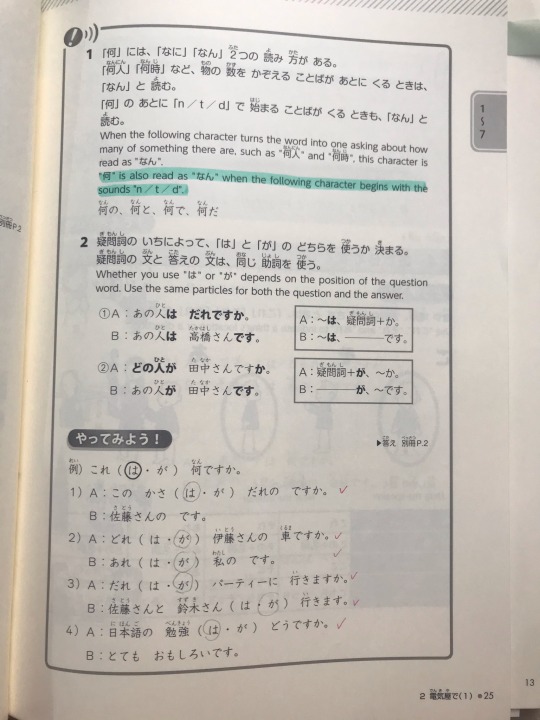
- Review questions after every few lessons.
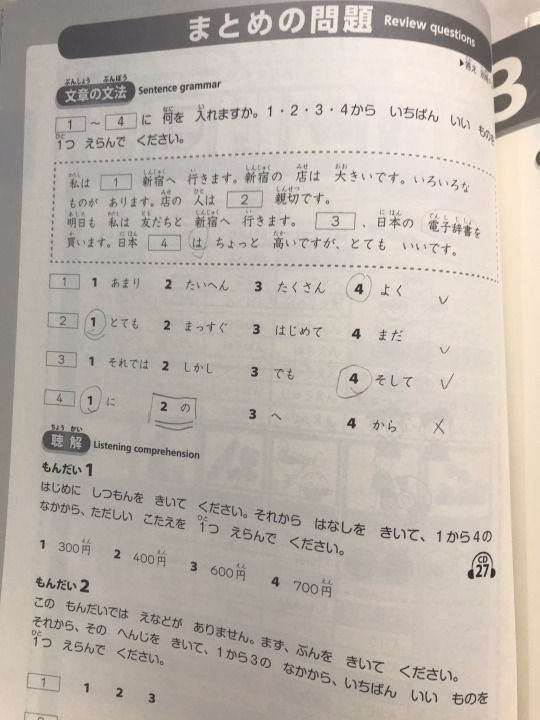
- Practice questions.
- A N5 practice exam at the end of the book.
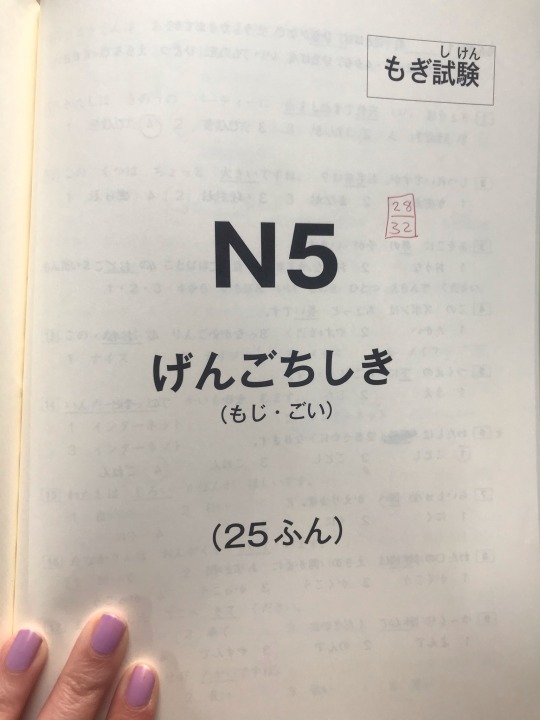
- N5 can do list.
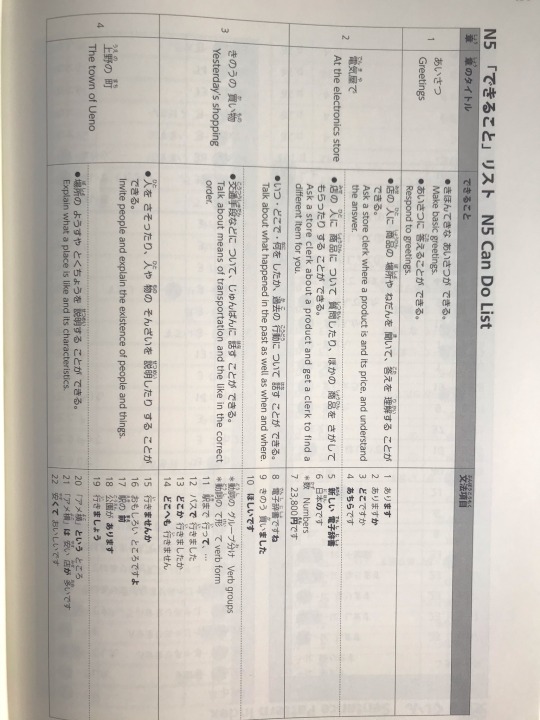
- No alphabet reference!
- The answers to all the practice, review and exam questions are in a separate booklet at the end of the book.
- You don’t feel like a child using it 🙂
I’ve tried using a lot of different books learning Japanese, and by far I liked this one the most. It’s very straightforward. Gives you the main points without any lengthy explanation. Which is what I liked the most.
But you have to have some basic language to be able to use this book 👍🏻
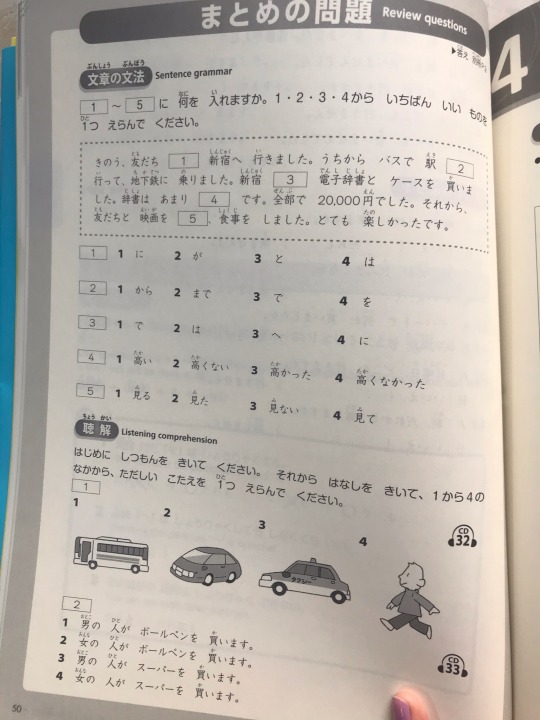
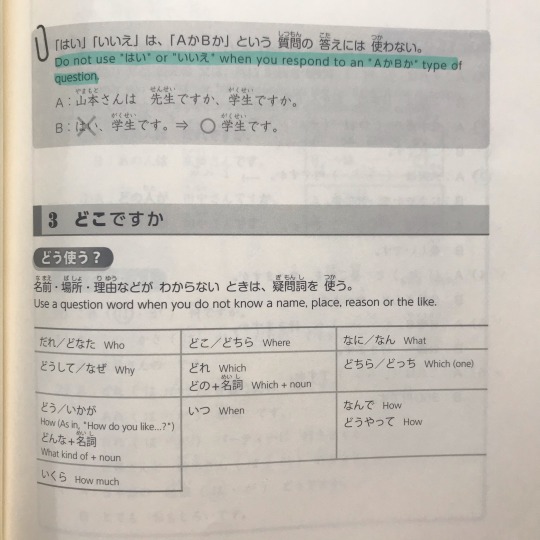
#japanese#japan#日本語#japanese elearning#日本#japanese learning#japanese lessons#language#カタカナ#感じ#Try n5
107 notes
·
View notes
Text
I want to introduce a very helpful site, especially for reading practice. It categorizes the vocabulary by it’s difficulty (N5-N1). And you can export the “starred” vocab to the app Anki (flash cards).
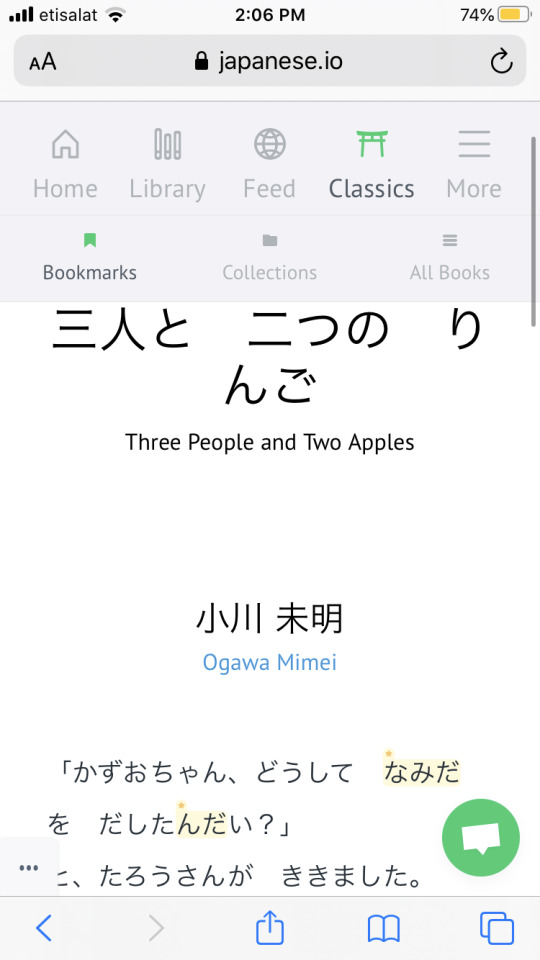
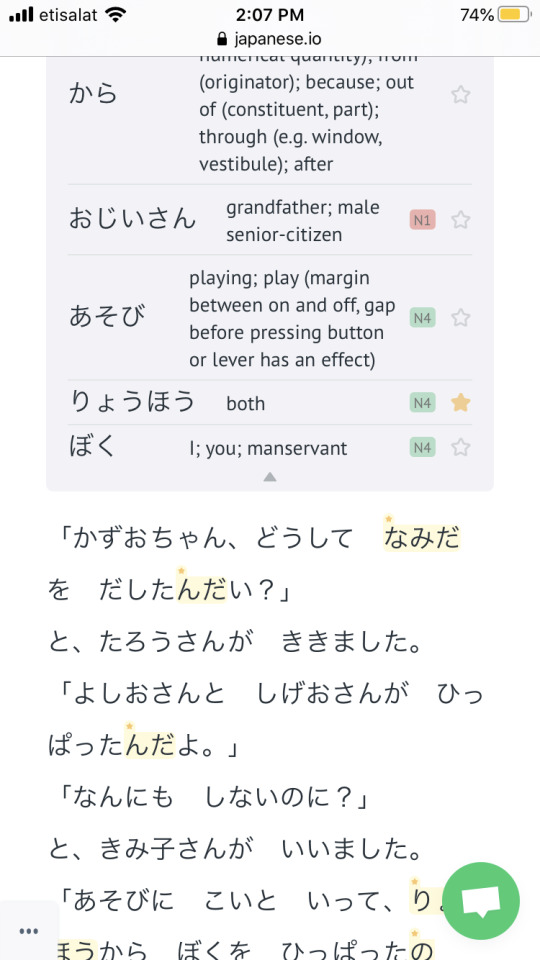
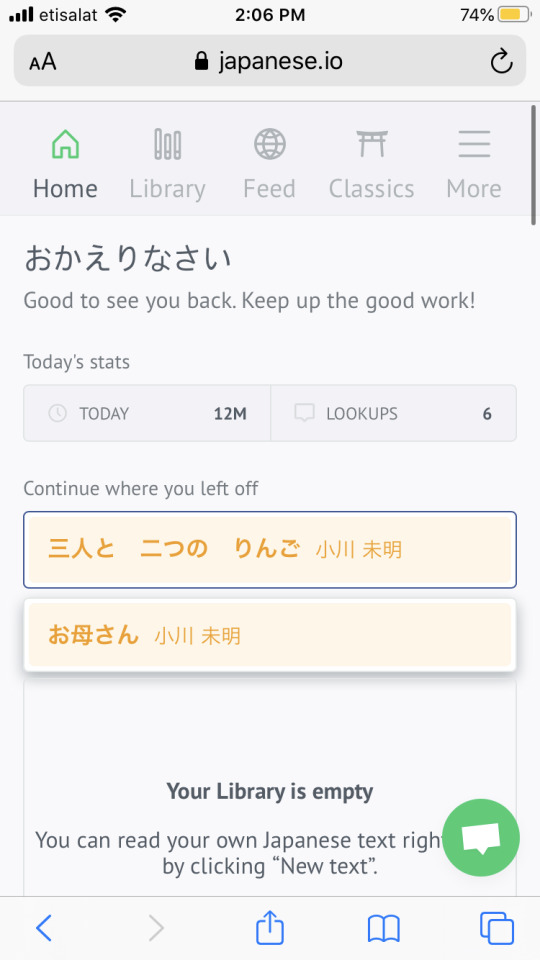

49 notes
·
View notes
Note
hello there! i would like to ask if you know any sites where i can practice reading japanese? like news sites, manga sites, or sites that offer free e-books that are in japanese. and are there any japanese podcasts that i can listen to? thank you in advance for answering this question. it'd mean a whole to me!
Hey there! There are actually quite a few recommended sites for Japanese learners, so I’ll link them right now :)
Japanese IO – I’ve used this site quite a few times and I love the interface! The design is really sleek and “to the point,” so there’s no distractions from what you’re trying to do, which is practice reading Japanese. It also has a great library and look-up feature.
朝日学生新聞社 – This is the “kid’s version” of the more adult 朝日新聞社. If you don’t feel that you’re quite up for the adult version, test out the version geared towards kids. They have fewer articles, but there’s plenty for a learner to pick through.
NHK NEWS EASY – I’m almost positive this is one of the most famous ones for learners. It’s similar to Asahi’s kid newspaper – articles are condensed with easier kanji and vocabulary, and it’s geared towards children, so learners can spend some time combing through updated articles and testing their skills.
Yahoo! Kids – More short news articles geared towards easier-to-understand Japanese.
MATCHA – A fun magazine similar in style to NHK EZ.
Watanoc – Another magazine-type site with a variety of articles.
Traditional Japanese Stories – Get your hands on some easily printed Japanese stories that are told to children. Great for language skills and culture! Similar to English pop culture stories (like Cinderella and so on), Japan has its own fairytales that are occasionally referenced.
Fuku Musume’s Fairy Tale Collection – More stories!
World of チョコチョコ – These are beginner stories, but as you progress you can read other stories on this website.
EhonNavi – Read hundreds of Japanese picture books for free!
If you’re looking for more advanced content…
NHK – Japan’s national broadcaster. You can read articles as well as stream audio and video (may be blocked depending on location).
毎日新聞 – Moderate/left-leaning national newspaper
朝日新聞 – Left-leaning national newspaper
読売新聞 – Conservative national newspaper
東洋経済オンライン – A well-known business and finance magazine.
Project Gutenberg (Japanese) – Get access to a ton of out-of-print and classical books for free.
小説家になろう – A site where authors can publish their works online in exchange for reviews.
青空文庫 – Another site where you can get older and out-of-print novels.
University of Virginia Japanese Text Initiative – Another place to access novels in Japanese for free (with the option to read them with furigana).
ComicWalker – Free manga from the publisher Kadokawa. There’s an app too!
最前線 – You can read some manga online for free.
コミコ – More free Japanese manga available here!
キナリノ – A woman’s lifestyle blog which covers fashion, cooking, decor, and more!
Magazine Lib – You can read PDFs of Japanese magazines.
1000文字小説 – A place where users can submit 1000 characters or less stories.
I also highly recommend starting a Twitter (if you don’t already have one) and following Japanese accounts. I follow a lot of feminist and political accounts so that I’m learning words relevant to my interests, as well as interacting with people that are discussing topics of interest to me (i.e. women and their place in Japanese society).
If you’re curious, you can find me on Twitter at @sydney0313 :)
I hope this list proves useful to you! (And others.)
頑張ってください!
6K notes
·
View notes
Text
~にはまってる
It means to be stuck in something or to be into something.
1: 最近(さいきん)どう?
2: 昨日(きのう)から英語を勉強し始めたよ!
1: 英語??何で英語勉強してるの?
2: 特に理由はないけど、最近新しい言語(げんご)を勉強するのにははまってる!
1: いいね!アメリカに行った事(こと)ある?
2: まだない、でもいつか行けたらいいな。

New vocab:
言語 -> Language
67 notes
·
View notes
Text
暖かい VS 温かい
Both of the words are translated to “warm” in English, but each one is used to describe different things. They have the same difference as 寒い and 冷たい.
寒い ≪ー≫ 暖かい
冷たい ≪ー≫ 温かい
暖かい
As mentioned in the previous post, 寒い was used to describe the weather. The goes for 暖かい. For example:
寒い冬より暖かい春が好きです。
寒い日 ≫ 暖かい日
温かい
温かい is used the same way as 冷たい. They are both used to describe the temperature of an object. In this case it describes that the object is warm.
こんな寒い日は、温かいスープがほしいです。
冷たいコーヒ ≫ 温かいコーヒ

18 notes
·
View notes
Text
Learning through chatting #1
what do you like in Japan?
- 私は日本の〜が好きです。
I like Japan’s______
- 特に(とくに)〜が大好きです
I specially like _______ a lot.
Example:
私は日本語が好(す)きです。アニメはおもしろいし、特に着物(きもの)や、伝統(でんとう)的(てき)建物(たてもの)はキレイだと思(おも)います。
I like the Japanese language. The Anime is fun, and I specially think that the Kimonos and the traditional buildings are pretty.
今日は何をしていますか?(what are doing today?)
- 仕事(しごと)がないので勉強(べんきょう)するかも。
- 仕事ないので日本語の勉強をするかもしれない。
I don’t have work so i might study Japanese.
Have you been to japan?
- 日本にはまだ行(い)ったことがないけど、いすか行きたいです。
I haven’t been to Japan, but i want to go sometime.
Other expressions:
待(ま)ってるねー
I’ll wait!/ I’m waiting
難(むずか)しい
difficult
怒(おこ)らないよー
i am not mad/angry
楽(たの)しそう!
That sounds fun!
すごく上手 (すごくかみて)
very good!/ you’re so good
びっ��りした
I am surprised
一緒 (いっしょに)
together
ゆっくりでいいですよ
its okay to do it slowly/ Take your time

106 notes
·
View notes
Text
冷たい VS. 寒い
whilst both mean “cold” in English, they mean different things in Japanese.
冷たい(つめたい)- is used to talk about the temperature of an object being cold. 温度で使います。
for example:
水が冷たい。The water is cold.
氷(こおり)は冷たい。The ice is cold.
note here that we are describing the temperature of the water and the ice.
寒い(さむい)- is used to describe the weather. (physical) 気温で使います。
for example:
外(そと)が寒い。Its cold outside
部屋(へや)の中(なか)が寒い。The room is cold.
note here that we are describing the temperature of the weather outside, and the room’s temperature.

#日本語#Japan#japanese#japanese learning#japanese lessons#Japanese eLearning#language#vocabulary#language learning#vocabulary list#langblr#langblrjourney
60 notes
·
View notes
Text
北風と太陽 The north wind and the sun (part 1)

「おれの方が強い。」
方が (ほが) used to express comparison
強い (つよい) strong
北風と太陽の声が聞こえます。
北風 (こたかぜ) north wind
太陽 (たいよう) sun
声 (こえ) voice
聞く (きく) to listen
二人はどちらの力が強いかでケンカをいているようです。
力 (ちから) power/ energy/ force
ケンカ (けんか) fight
ようだ (ようです) seems to be...
「太陽が毎日元気だから、暑くてみんな困っているよ。おれが涼しい風を吹くと、みんな嬉しそうだ。おれの方がみんなの役に立っているよ。」
毎日 (まいにち) everyday
暑い (あつい) hot (weather)/ warm
困る (こまる) to be troubled/ bothered/ worried
涼しい (すずしい) cool/ refreshing
吹き (ふき) blowing of the wind
嬉しい (うれしい) happy/ glad
役に立つ (やくにたつ) to be useful/ to be helpful
「でも、ぼくがいないと、木や野菜は育ないよ。冬は北風の吹く風が冷たくて、とても寒かった。みんな外に出られなかったよね?最近は暖かいから、みんな喜んでいるよ。」
育つ (そだつ) to grow
冬 (ふゆ) winter
冷たい (つめたい) cold/ chilly/ freezing
寒い (さむい) cold
出る (でる) to leave/ to go outside
最近 (さいきん) recently
暖かい (あたたぁい) warm
喜んで (よろこんで) with pleasure
「いいや、あそこを見て。太陽が強く照らすから、川の水がもうすぐ無くないそうだ。水がないと、みんな生活できないよ。」
照らす (てらす) to shine on, to illuminate
生活 (せいかつ) life/ existence
Source & English translation

13 notes
·
View notes
Text
Everyday phrases
INTRODUCING YOURSELF
はじめまして。 ➞ Nice to meet you.
____です。よろしくおねがいします。 ➔ I am ____. please treat me favorably. (shows your good intentions for the future)
if someone says to you よろしく first, you should say こちらこそよろしく。
GREETING
おはようございます。(Good morning)
こんにちは。(Good afternoon)
こんばんは。(Good evening)
PARTING
じゃ、また。(See you later - informal)
じゃあ、しつれいします。(See you later - formal)
さようなら。(Good-bye)
EXPRESSING GRATITUDE & APOLOGIES
どうもありがとうございます。(Thank you very much -formal)
いいえ、ぜんぜん。(no, not at all)
どういたしまして。(you are welcome)
どうもすみません。(I am very sorry - formal) / すみません。/ ごめんなさい。
いいえ。(no./ its okay.)
どうも ➔ is an adver used to emphasize your seriousness for thanking or apologizing. could also mean Thanks if used by its self.

49 notes
·
View notes
Text
demonstratives
Adjectives
⁂ before a common noun
① この ➔ if the item is within the speaker’s reach.
② その ➔ if the item is within the listener’s reach, but out of the speaker’s reach.
③ あの ➔ is the item is outside of the speaker’s and the listener’s reach.
Pronouns (non-human)
① あれ ➔ (that one over there)
② これ ➔ (this one)
③ それ ➔ (the one near you)
あれは学校(がっこう)です。

38 notes
·
View notes
Text
Naming people & things
X is Y. ➔ X は Y です。
私は学生です。 ➔ I am a student.
⁂ In Japanese most sentences start with a topic.
⁂ は and が cannot occur together.
The negative copula verb
X is not Y. ➔ XはYじゃありません。
➔ XはYではありません。
➔ XはYではないです。
マリアさんは先生じゃありません。学生です。➔ Maria is not a teacher. (she) is a student.
も ➔ Also/ too
マリアさんは学生です。スミスさんも学生です。 ➔ Maria is a student. Smith is also a student.
Mentioned Kanji:
学生 (がくせい) ➞ Student
先生 (せんせい)➞ Teacher
10 notes
·
View notes
Text
Basic Kanji
人 ➞ hito, jin, nin ➞ person
日 ➞ hi, nichi, ni ➞ sun, day
川 ➞ kawa, gawa, sen ➞ river
山 ➞ yama, san ➞ mountain
口 ➞ kuchi, guchi, kou ➞ mouth
田 ➞ ta, da, den ➞ rice field
私 ➞ watashi, shi ➞ I, me
本 ➞ moto, hon ➞ book, origin, root, true
usage examples:
日本 ➞ nihon ➞ Japan
日本人 ➞ nihon-jin ➞ Japanese person
あの人 ➞ ano hito ➞ that person
山田 ➞ yamada ➞ Yamada (family name)
川口 ➞ kawaguchi ➞ Kawaguchi (family name)
私の本 ➞ watashi no hon ➞ my book
山と川 ➞ yama to gawa ➞ mountains and rivers

102 notes
·
View notes
Text
Katakana worksheets
hello! long time no see :D
I am finally picking up my Japanese studying again! the first thing I thought I'd do is to memorize the Katakana. it’s a nightmare to me whenever I try to read something in Japanese. so I looked for some worksheets online. this link will take you to a website that has free PDF worksheets and free Hiragana & Katakana charts!
#japanese#japanese learning#japanese lessons#Japanese eLearning#Japan#language#vocabulary#language learning#vocabulary list#langblr
16 notes
·
View notes

